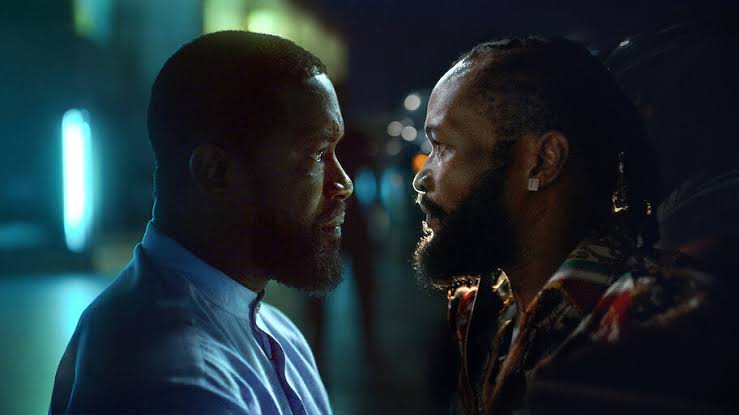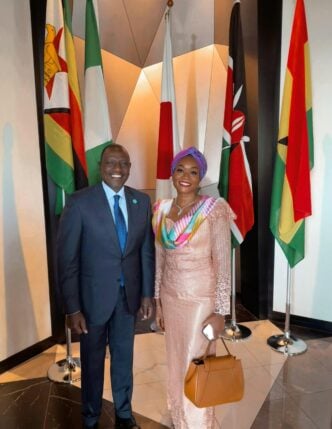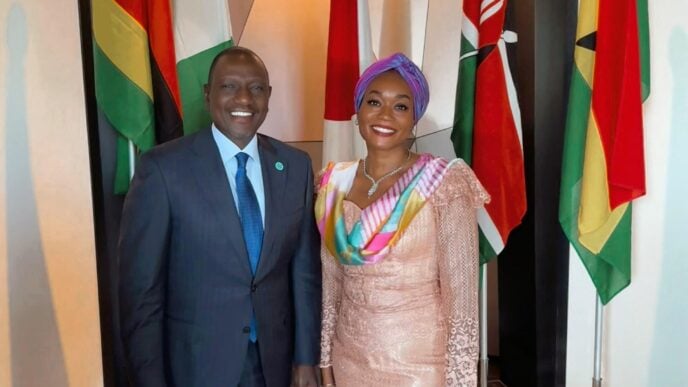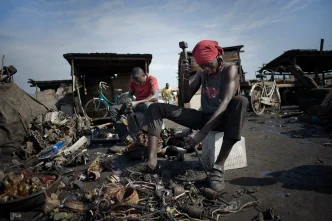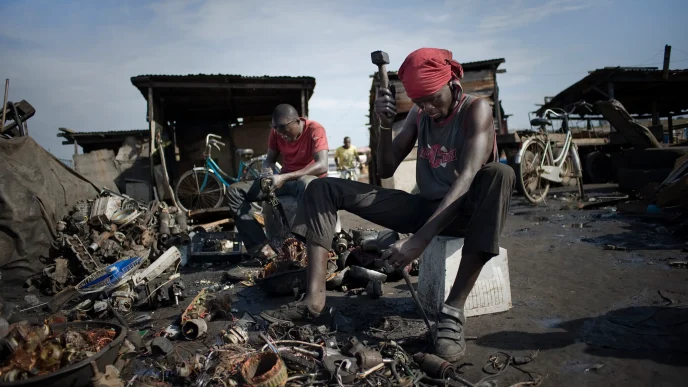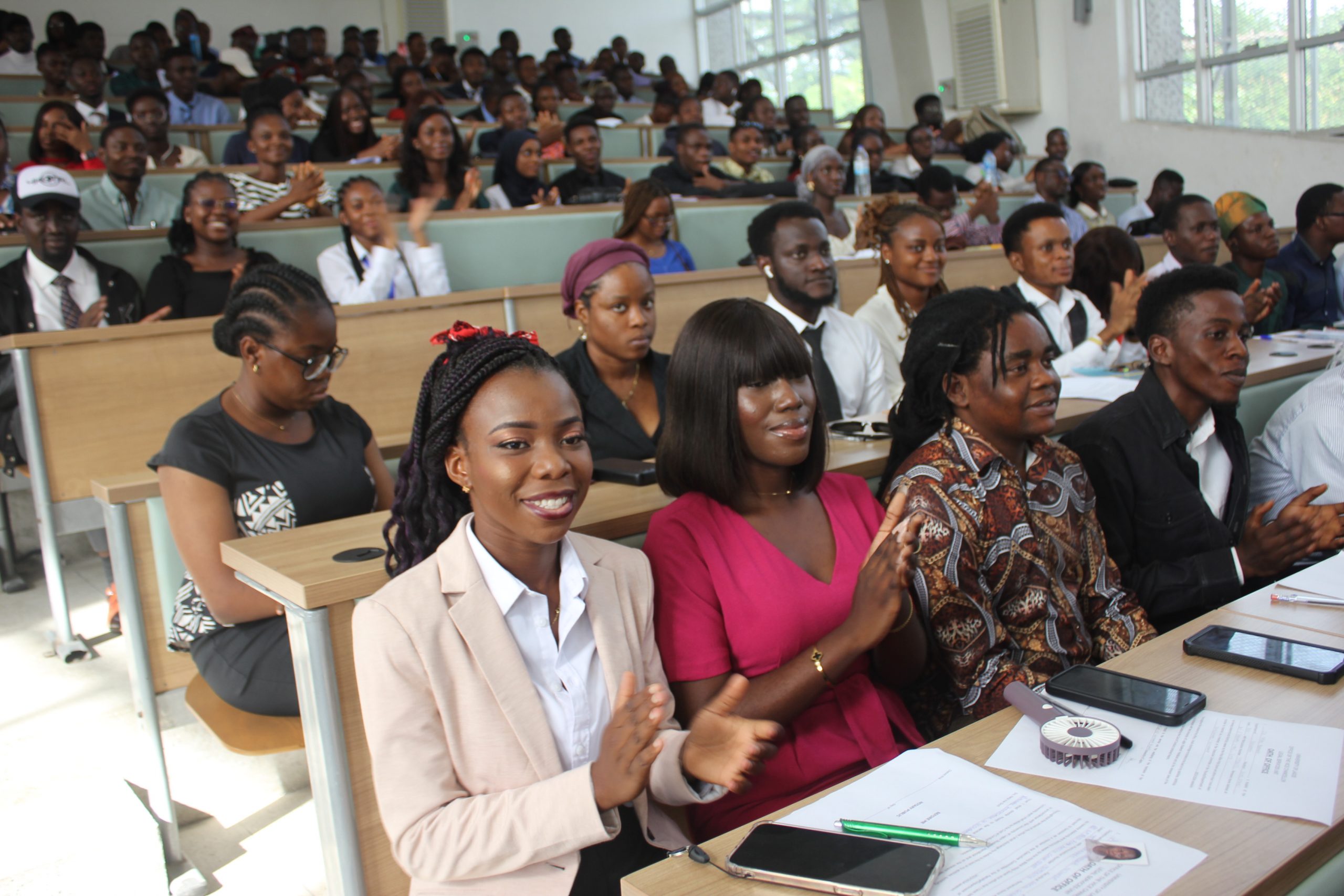Few weeks ago when “To Kill a Monkey” first took over conversations online, I was deep in work and barely paying attention. The buzz came and went. But on a recent 12-hour flight, I finally started it, more out of curiosity than intent. Then over the weekend, I watched the rest. Eight episodes. Every scene heavy. Every choice loud, even in silence.
I didn’t plan to write anything, but this story lingered. Like many things that stay with you, it demanded reflection on the show and also on the society it mirrors.
In To Kill a Monkey, Kemi Adetiba returns with a dark, morally complex series that doesn’t just entertain but indicts. Set against the harsh backdrop of urban Nigeria, this Netflix mini-series follows Efemini “Efe” Edewor, a struggling father and out-of-luck programmer seduced into the underworld of cybercrime. What begins as a bid for survival quickly spirals into a moral and emotional abyss, pulling viewers into a story that is less about fraud and more about the fragile human condition beneath the fraud.
Cybercrime as Survival, Not Just Sin
Advertisement
What To Kill a Monkey does so effectively is strip cybercrime of its glossy headlines and present it as a messy, deeply human choice; born not only from greed but from desperation. Efe’s descent isn’t driven by the thrill of scamming or flashy lifestyle pursuits. It is about feeding his family, reclaiming his dignity, and navigating a system that has failed him.
The show presents cybercrime as distorted aspiration and forces a confrontation with the uncomfortable idea that in a broken system, crime can sometimes look like logic. When the economy doesn’t reward effort, when institutions collapse trust, and when dignity becomes expensive, what is left of the social contract?
The show forces us to sit with that truth: when survival becomes a game of odds, morality is often the first casualty. This is where Adetiba’s direction shines. The series becomes a mirror, reflecting the structural inequalities that nudge many young Nigerians toward digital fraud—unemployment, broken systems, and lost faith in legitimate opportunity. Yet, it never fully excuses the crime. Instead, it blurs the lines between victim and perpetrator, asking: Who is truly guilty in a society that leaves its best minds to rot? In a country where over 106 million Nigerians live in extreme poverty and unemployment is a big deal, the movie drags a lot of concern and reflection for what is left of us as a nation.
Advertisement
The First-Class Brain in a First-Class Mess
One of the most unforgettable moments in the series comes early, when Efe was introduced into the cybercrime ring, he chooses not just to upgrade the operation latching on his academic training by identifies fundamental flaws in Oboz’s system and proposes a more structured, scalable approach.
What is powerful isn’t just that he improved it, but that he asked for equity. That scene struck me deeply because even in poverty and desperation, Efe paused long enough to ask: What is my share?
It reminded me that poverty does not erase ambition. Desperation doesn’t cancel vision. Efe didn’t want a cut; he wanted co-ownership, structure, and process. It was the language of someone who still believed, somewhere deep down, that value should be earned, not just taken.
Advertisement
That brief negotiation captures the tragedy of many brilliant Nigerians: people whose talents, had they been nurtured in functioning systems, would have built companies, not criminal networks. But in the absence of opportunity, brilliance finds its outlet wherever it can, even in fraud. And when it does, it doesn’t forget how to calculate equity.
The Betrayal That Cuts the Deepest
At the heart of To Kill a Monkey is betrayal—both personal and systemic.
Efe’s rekindled friendship with Oboz is a central pillar of the series. What begins as brotherhood soon curdles into manipulation. Oboz lures Efe into a criminal ring under the guise of loyalty, only to leave him with blood on his hands and a soul he can no longer recognize. But betrayal in this story isn’t always grand or dramatic.
Advertisement
Sometimes it’s quiet—draped in good intentions and whispered in the name of survival. Oboz sleeping with Efe’s daugther was a very clear chanel of betrayal that made a mess of the meaning of “brotherly” that he calls him. What To Kill a Monkey exposes is how betrayal is often born out of compromise.
And it is that quiet, transactional betrayal between friends, spouses, systems, and selves that cuts the deepest. But then, as we saw in the movie, betrayal is not just interpersonal; the system itself is a constant traitor. From a corrupt law enforcement structure to an elite class detached from everyday struggle, To Kill a Monkey reveals how Nigerian society often betrays its own, especially those without safety nets.
Advertisement
Women, Law, and the Cost of Choices
The women in this series—especially Nosa and Inspector Mo Ogunlesi are not background props. They carry the emotional and moral weight of the narrative. One moment that stayed with me was when Nosa took their sick child to the hospital, and the doctor—calm, attentive—subtly flirted with her. It wasn’t loud or dramatic, but something in me said, “These two will end up together.”
Advertisement
So when they were eventually caught toward the end of the series, I wasn’t surprised. What surprised me more was Nosa’s shift—the emotional distance, the coldness, the quiet disdain she began to show Efe. This was the same woman who stayed with him when he had nothing, who endured the hardest years, who believed in him when belief felt like charity. And yet, once the money came in, she became his harshest critic. It made me wonder: is it true that once money is no longer a growing concern, what really keeps a family is safety, stability, and presence?
Because it wasn’t just that Efe was making money through the wrong means—it was the secrecy, the violence, the fear that began to settle into their home like a permanent guest. It’s easy to say love conquers all, but love doesn’t thrive in chaos. And sometimes, when survival is no longer the problem, people start asking harder questions: Do I still feel safe here? Do I still recognise the person I’m with? Am I still myself in this story?
Advertisement
That, for me, was one of the quieter tragedies of the series: Nosa didn’t leave because Efe was poor. She emotionally checked out when he became rich in a way that made her feel invisible, unsafe, and disconnected.
On the other hand, Inspector Mo is the moral compass of the story, representing a system trying (however imperfectly) to clean its rot. But what stood out for me was the contrast between her and Superintendent Babalola. Their interactions weren’t just bureaucratic power plays—they were deeply personal, laced with old wounds and unspoken history.
You could feel that this wasn’t just about cybercrime—it was payback time. Babalola’s ambition came with an edge of vengeance, and her disdain for Mo was more than professional—it was a slow, simmering attempt to erase her credibility. Watching them clash felt like witnessing the tension between reform and revenge, where one person is trying to do the work, and another is trying to settle a score. And in that process, Inspector Mo almost got swallowed—not by the criminals she was chasing, but by the politics within her own system.
Ivie, Amanda, and the Women the System Fails Twice
Ivie is a quiet tragedy. She isn’t fully in the game, but she’s close enough to get hurt. Her innocence and openness stood in stark contrast to the chaos around her. But somewhere along the line, something broke. I still wonder what exactly went wrong—what damaged her so deeply that she ended up sleeping with Oboz and wrecking her own father in the process. That part of the story unsettled me. I wasn’t sure how to feel.
This was someone who loved her dad, or at least it seemed so. And suddenly she became one of the sharpest thorns in his life. Maybe it’s pain. Maybe it’s betrayal. Maybe she just gave up. But it stayed with me, that emotional shift.
Amanda, on the other hand, was something else entirely. She’s the kind of character you can’t fully judge. You know she’s been through fire from her story. She’s not trying to heal—she’s just trying to stay in control. And what she did to Efe in the end was wild. When she cornered him, there was no pity, no pause—just silence and consequence.
Then she vanished into the noise of social media like nothing happened. That was crazy. But it also made me think: in everything we do, we should try to live right and avoid the kind of secrets that can destroy us. Amanda was proof that you can never fully know anyone. She smiled, she helped, she even felt trustworthy at times—but she finished him. Clean.
Aunty Adunni and the Lingering Scars of Exploitation
Efe’s struggling years at the restaurant reveal a haunting subplot: Aunty Adunni, a supposed benefactor sexually exploited him under the guise of help. What made that moment so disturbing the way it was presented. Quiet. Underrated. Almost normal. That’s what hit me. Efe didn’t nsee it as a big deal. it just folded it into his story, like something that happens when you are broke and vulnerable. And I think that’s the reflection right there: too many boys go through these things, but they don’t call it what it is.
Society teaches them to see it as part of becoming a man, or just one of those things you survive and move on from. But it stays. It shapes how they love, how they trust, how they handle shame. Efe had too many layers—poverty, ambition, betrayal, violence—but this one stood out. Because it’s the kind of trauma that hides in plain sight, and no one talks about it.
The Teacher: Evil with a Philosophy
The most menacing figure in the series isn’t Efe or Oboz—it’s The Teacher. Played with icy precision by Chidi Mokeme, The Teacher doesn’t scam directly—he builds the infrastructure, the ideology. He rationalizes crime as economic resistance and poverty as a recruitment tool.
He doesn’t need to kill anyone—he just whispers long enough until people kill themselves, their dreams, or each other.
He is the priest of a broken gospel: survival at all costs. The only rule? Kill the monkey—or be eaten.
To Kill a Monkey isn’t flawless. Some parts drag, a few scenes feel bloated, and certain characters don’t get the depth they deserve. I would say 8 episodes was a stretch. But those flaws pale in comparison to its emotional weight and narrative power. This series is a searing portrayal of choices made in the dark—when the light feels too far to reach.
More than just a crime thriller, To Kill a Monkey is a social commentary disguised as drama. It forces us to look inward: Are we breeding the very monsters we claim to fight? And when the system is broken, who gets to judge the broken men it creates?
One final question the show leaves us with is that: If the monkey is what we carry (our shame, poverty, rage), then what does it take to truly kill it? And when we finally do, what is left of us?
Akintunde Babatunde, executive director, Centre for Journalism Innovation and Development, can be contacted via [email protected]
Views expressed by contributors are strictly personal and not of TheCable.
